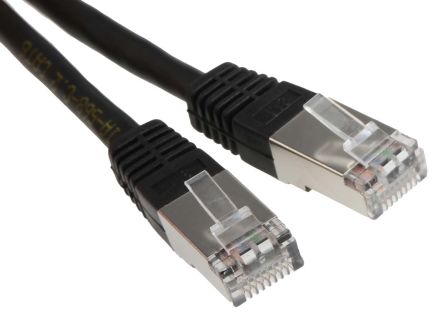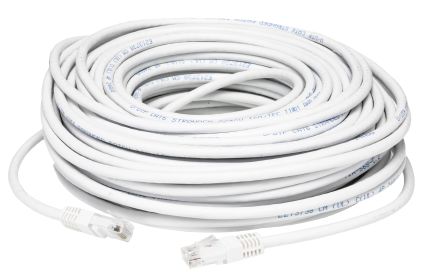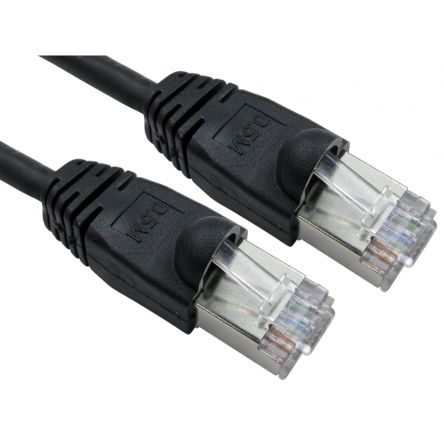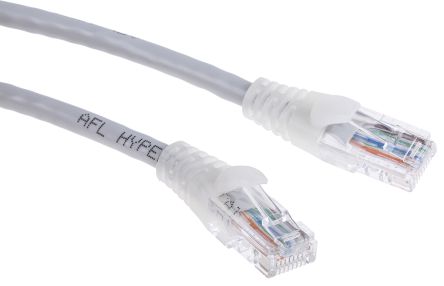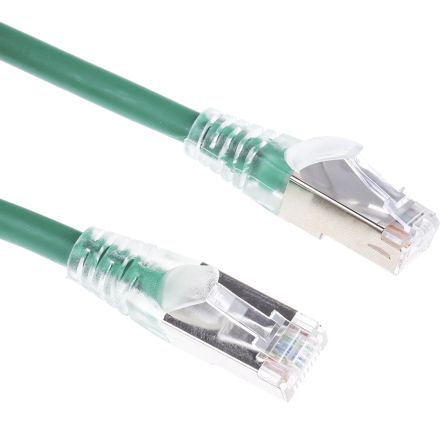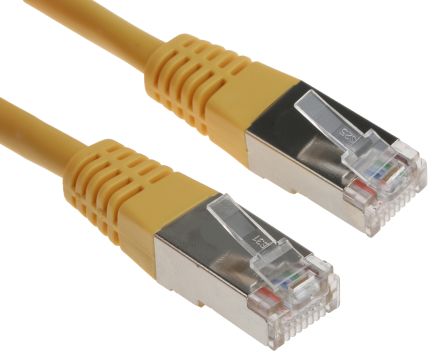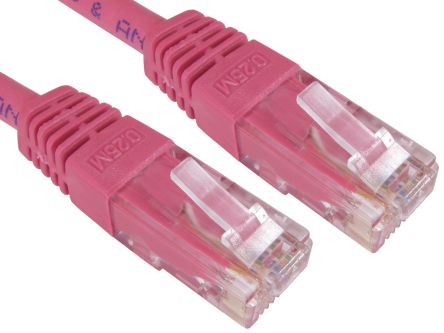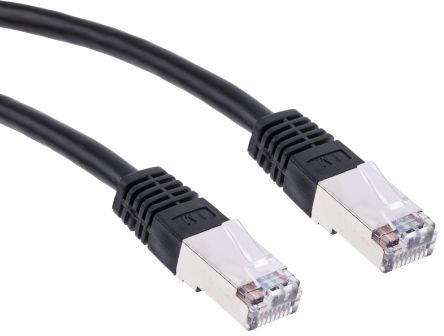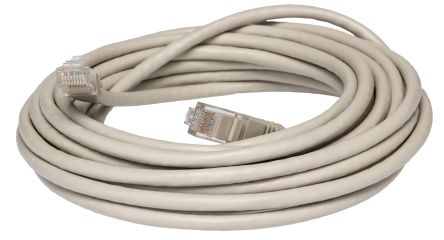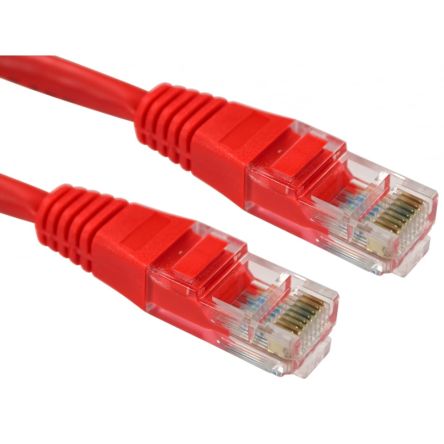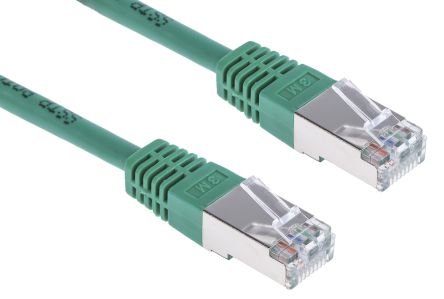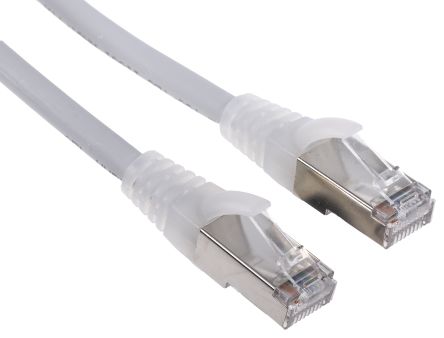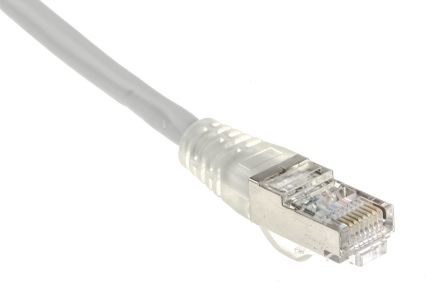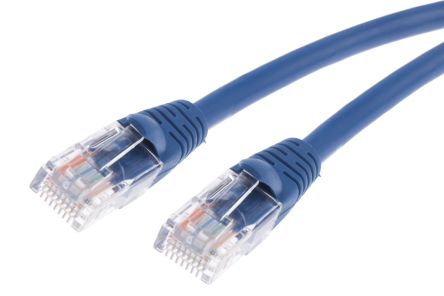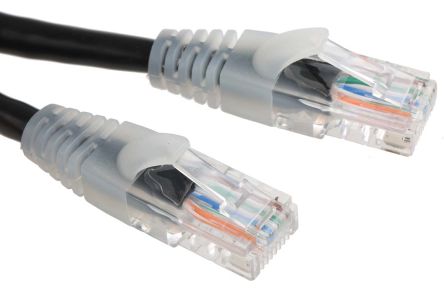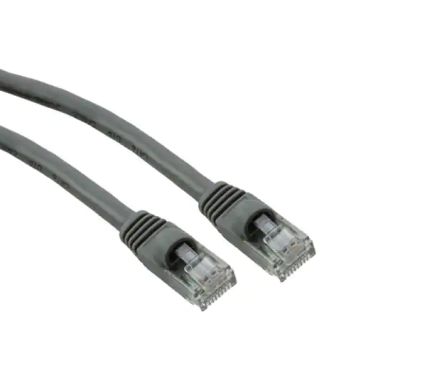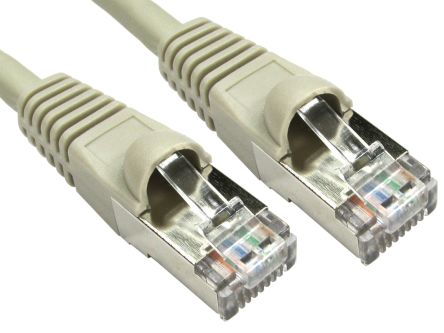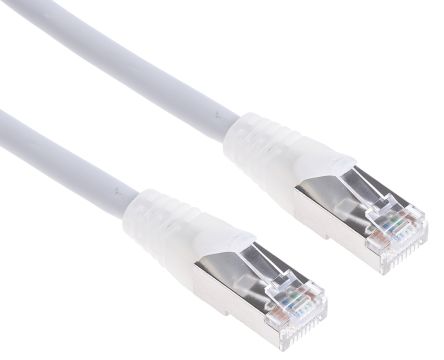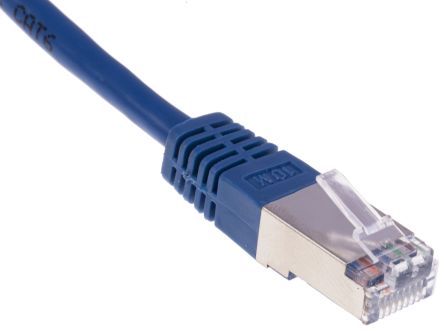| RS PRO | - | Cat6 | 3m | Terminated | S/FTP | RJ45 | Male | 8 | Straight | RJ45 | Male | 8 | Straight | Shielded | - | T | PVC | Black | Straight Through | - | - | - | - | - |
|
| RS PRO | - | Cat6 | 30m | Terminated | UTP | RJ45 | Male | 8 | Straight | RJ45 | Male | 8 | Straight | - | - | - | PVC | White | Straight Through | - | 7/0.183 | - | - | - |
|
| RS PRO | - | Cat6 | 3m | Terminated | FTP | RJ45 | Male | 8 | Straight | RJ45 | Male | 8 | Straight | Shielded | - | - | LSZH | Black | Crossover | - | 7/0.151 | Low Smoke Zero Halogen (LSZH) | - | - |
|
| RS PRO | - | Cat5e | 3m | Terminated | U/UTP | RJ45 | Male | 8 | - | RJ45 | Male | - | - | Unshielded | - | - | PVC | Grey | Straight Through | - | - | - | - | - |
|
| RS PRO | - | Cat6 | 2m | Terminated | F/UTP | RJ45 | Male | - | - | RJ45 | Male | - | - | Shielded | - | - | LSZH | Green | Straight Through | - | - | - | - | - |
|
| RS PRO | - | Cat5 | 5m | Terminated | F/UTP | RJ45 | Male | - | - | RJ45 | Male | - | - | Shielded | - | - | PVC | Yellow | Straight Through | - | - | - | - | - |
|
| RS PRO | - | Cat6 | 7m | Terminated | UTP | RJ45 | Male | 8 | Straight | RJ45 | Male | 8 | Straight | - | - | - | PVC | Pink | Straight Through | - | 7/0.183 | - | - | - |
|
| RS PRO | - | Cat6 | 1m | Terminated | S/FTP | RJ45 | Male | 8 | Straight | RJ45 | Male | 8 | Straight | Shielded | - | T | PVC | Black | Straight Through | - | - | - | - | - |
|
| RS PRO | - | Cat6 | 6m | Terminated | UTP | RJ45 | Male | 8 | Straight | RJ45 | Male | 8 | Straight | Unshielded | - | - | PVC | Grey | Straight Through | - | 7/0.183 | - | - | - |
|
| RS PRO | - | Cat5e | 1.5m | Terminated | UTP | RJ45 | Male | 8 | Straight | RJ45 | Male | 8 | Straight | Unshielded | - | - | PVC | Red | Crossover | - | 7/0.196 | - | - | - |
|
| RS PRO | - | Cat6 | 3m | Terminated | S/FTP | RJ45 | Male | 8 | Straight | RJ45 | Male | 8 | Straight | Shielded | - | T | PVC | Green | Straight Through | - | - | - | - | - |
|
| RS PRO | - | Cat6 | 2m | Terminated | S/FTP | RJ45 | Male | 8 | Straight | RJ45 | Male | 8 | Straight | Shielded | - | T | PVC | Black | Straight Through | - | - | - | - | - |
|
| RS PRO | - | Cat5e | 5m | Terminated | F/UTP | RJ45 | Male | 8 | - | RJ45 | Male | - | - | Shielded | - | - | PVC | Grey | Straight Through | - | - | - | - | - |
|
| RS PRO | - | Cat5e | 2m | Terminated | F/UTP | RJ45 | Male | 8 | - | RJ45 | Male | - | - | Shielded | - | - | PVC | Grey | Straight Through | - | - | - | - | - |
|
| RS PRO | - | Cat5e | 10m | Terminated | U/UTP | RJ45 | Male | 8 | - | RJ45 | Male | - | - | Unshielded | - | - | LSZH | Blue | Straight Through | - | - | - | - | - |
|
| RS PRO | - | Cat5e | 10m | Terminated | U/UTP | RJ45 | Male | 8 | - | RJ45 | Male | - | - | Unshielded | - | - | PVC | Black | Straight Through | - | - | - | - | - |
|
SGD6.165 Each (In a Bag of 100) | RS PRO | - | Cat6 | 3m | Terminated | U/UTP | RJ45 | Male | 8 | - | RJ45 | Male | 8 | - | Unshielded | - | - | PVC | Grey | - | - | 4 | UL 94 V0 | - | - |
|
| RS PRO | - | Cat6a | 250mm | Terminated | S/FTP | RJ45 | Male | 8 | Straight | RJ45 | Male | 8 | Straight | Shielded | - | - | LSZH | Grey | Straight Through | - | - | Low Smoke Zero Halogen (LSZH) | - | - |
|
| RS PRO | - | Cat6a | 10m | Terminated | S/FTP | RJ45 | Male | - | - | RJ45 | Male | - | - | Shielded | - | - | LSZH | Grey | Straight Through | - | - | - | - | - |
|
| RS PRO | - | Cat6 | 10m | Terminated | S/FTP | RJ45 | Male | 8 | Straight | RJ45 | Male | 8 | Straight | Shielded | - | T | PVC | Blue | Straight Through | - | - | - | - | - |
